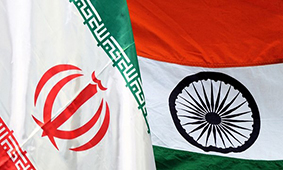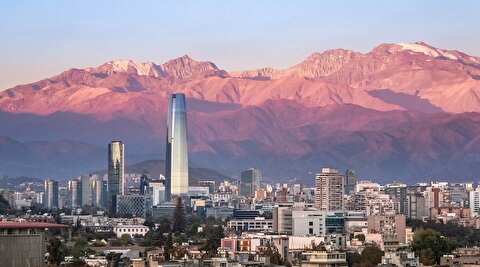
India Exempts Iran from Heavy Taxes in Oil Rupee Payments


The exemption, put in place December 28 but backdated to November 5, will allow Indian refiners to settle about $1.5 billion of outstanding payments to the NIOC; those have been building up since Tehran was put under stringent US sanctions in early November.
However, the income of a foreign company that is deposited in an Indian bank account is subject to a withholding tax of 40 percent plus other levies, leading to a total take by the authorities of 42.5 percent.
Iran will be able to use the rupee funds for a range of expenses - including imports from India, the cost of its missions in the country, direct investment in Indian projects, and its financing of Iranian students in India, according to another government document reviewed by Reuters. It can also invest the funds in Indian government debt securities.
That made the agreement unworkable for Iran and led to the freeze in payments by the refiners until the exemption could be introduced.
The tax exemption order, though, only refers to crude oil. That means it does not apply to imports of other commodities, such as fertilizer, liquefied petroleum gas and wax.
India, Iran’s top oil client after China, has turned to paying for Iranian oil in rupees as major banking channels dealing in global currencies are closed off by the US sanctions.
The tax exemption order, though, only refers to crude oil. That means it does not apply to imports of other commodities, such as fertilizer, liquefied petroleum gas and wax.
India, Iran’s top oil client after China, has turned to paying for Iranian oil in rupees as major banking channels dealing in global currencies are closed off by the U.S. sanctions.
Iran will be able to register as a foreign portfolio investor, allowing it to invest in Indian government debt.
In relevant remarks in late December, Iranian Oil Minister Bijan Zangeneh ruled out that the country's companies are facing problems in exporting crude due to the unilateral sanctions imposed by the US against Tehran.
"Private buyers of Iranian crude have been able to export it without any problems," Zangeneh said.
The Iranian oil minister pointed to the method of payment by Iran's foreign clients, and said, "Foreign buyers could choose whether to pay for the crude in Iranian rial or foreign currencies."
Iran launched the sale of oil supply futures on the eve of the new US sanctions targeting the country’s oil and banking sectors, and managed to sell 280,000 barrels of crude on the first day. In these transactions, the price per barrel was $74.85, 20 percent of which were paid in Iranian rial and the rest in foreign currencies.
In the second phase, the country sold 700,000 barrels of crude, with price per barrel at $64.97.
So far, the system of sales in the stock market was based on 20 percent paid with Iranian rial, and 80 percent in foreign currencies. Recent requests and proposals indicate that the sales will be paid 100 percent with Iranian rails from now on.


Gold price eases after Trump downplays clash with Fed chair Powell

Copper price hits new record as tariff deadline looms

Brazil producers look to halt pig iron output as US tariff threat crimps demand

Three workers rescued after 60 hours trapped in Canada mine

Gold price could hit $4,000 by year-end, says Fidelity

Chile’s 2025 vote puts mining sector’s future on the line

US targets mine waste to boost local critical minerals supply

Energy Fuels surges to 3-year high as it begins heavy rare earth production

Glencore workers brace for layoffs on looming Mount Isa shutdown

Trump tariff surprise triggers implosion of massive copper trade

Maxus expands land holdings at Quarry antimony project in British Columbia

BHP, Vale accused of ‘cheating’ UK law firm out of $1.7 billion in fees

Southern Copper eyes $10.2B Mexico investment pending talks

American Tungsten gets site remediation plan approved for Ima mine in Idaho

Kinross divests entire 12% stake in Yukon-focused White Gold

Gold price could hit $4,000 by year-end, says Fidelity

Southern Copper expects turmoil from US-China trade war to hit copper

Ramaco Resources secures five year permit for Brook rare earth mine in Wyoming

Column: EU’s pledge for $250 billion of US energy imports is delusional

Trump tariff surprise triggers implosion of massive copper trade

Maxus expands land holdings at Quarry antimony project in British Columbia

BHP, Vale accused of ‘cheating’ UK law firm out of $1.7 billion in fees

Southern Copper eyes $10.2B Mexico investment pending talks

American Tungsten gets site remediation plan approved for Ima mine in Idaho

Kinross divests entire 12% stake in Yukon-focused White Gold

Gold price could hit $4,000 by year-end, says Fidelity

Southern Copper expects turmoil from US-China trade war to hit copper

Ramaco Resources secures five year permit for Brook rare earth mine in Wyoming














